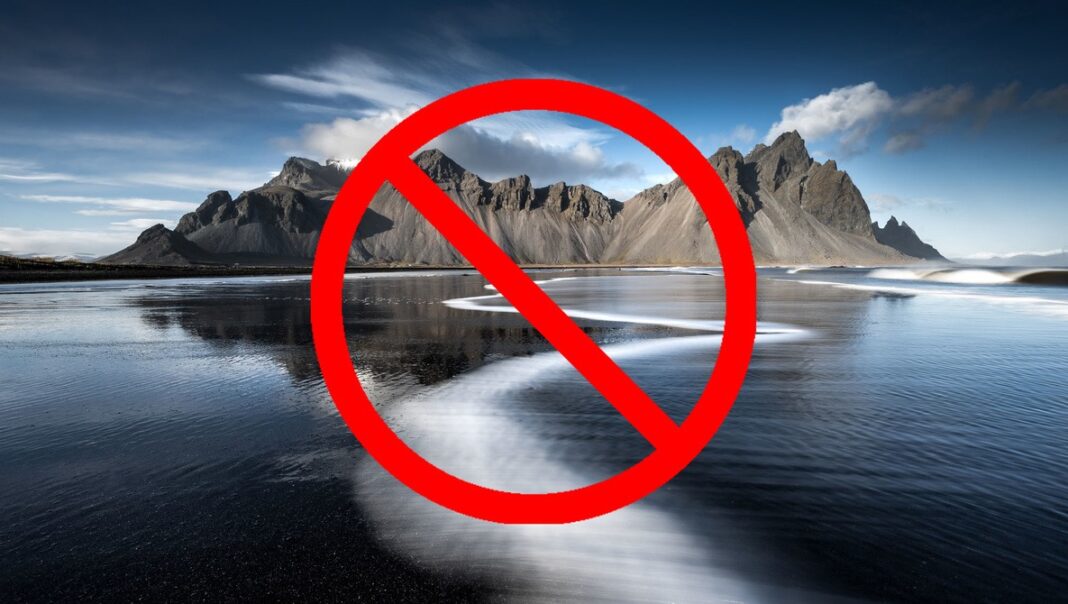We live in a time saturated with images. Every corner of the globe, every fleeting moment, is captured and shared with a click. Yet, amidst this deluge of visual information, a question lingers: how do we break through the noise and find something truly original? How do we capture the essence of a place, not merely its surface?
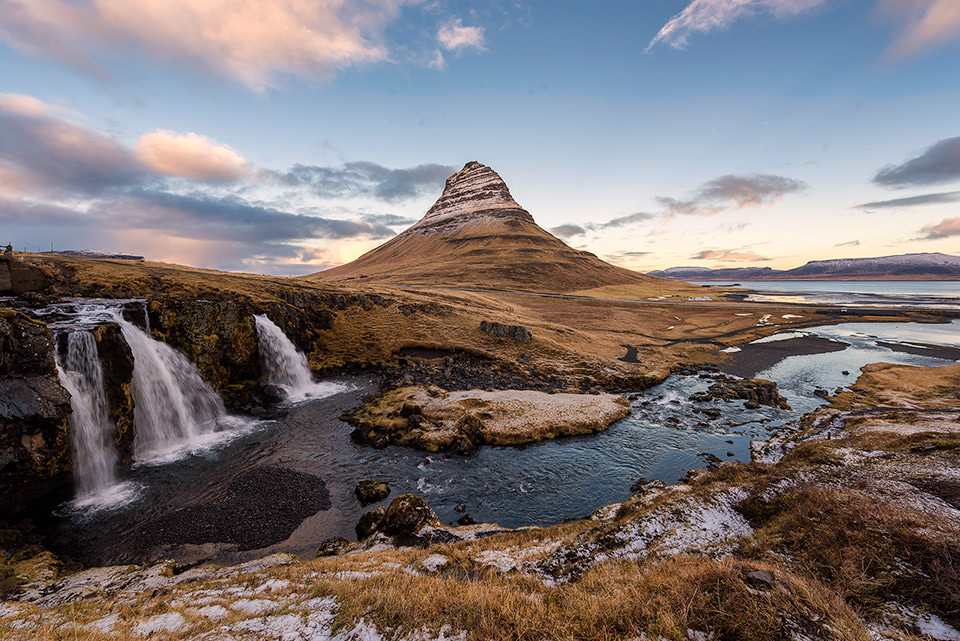
The Allure and Limitations of Iconic Locations
The Instagram Effect: How Popular Photo Spots Dominate Online Spaces
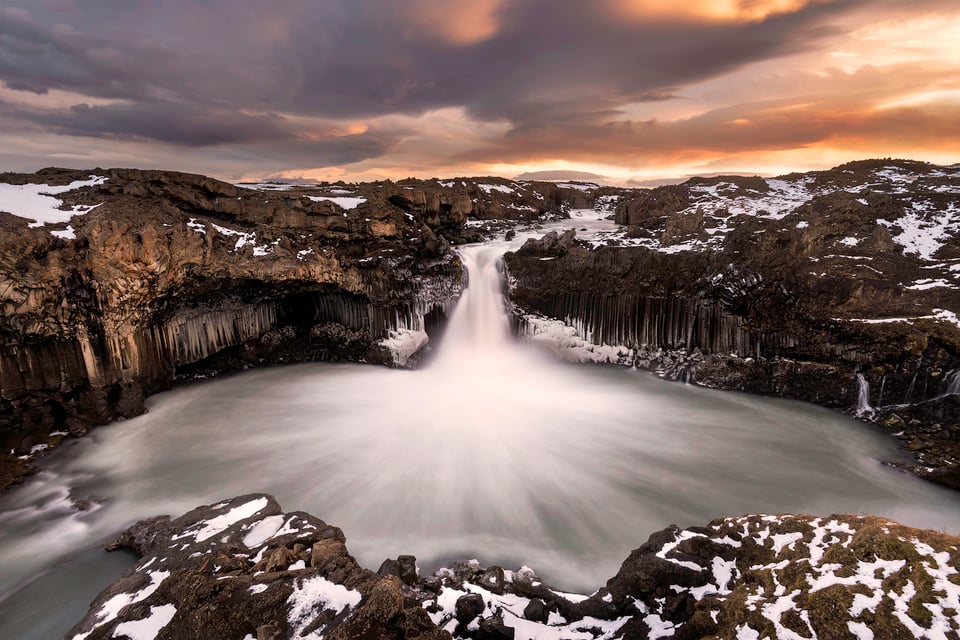
Contemporary landscape photography is dominated by the same 20-50 locations. We have all seen specific locations being reproduced and reinterpreted repeatedly, and only a few stand out from the crowd. The key to making unique landscape photos is very simple: find something new to photograph. Let me be the first to say I have absolutely nothing against photographing the icons. There are many benefits to doing so, and I thoroughly enjoy it myself. However, it is hard to argue that no matter how you edit your photos, they will hardly be unique. Someone else has already made that sunrise photo from Mesa Arch, someone else has already made a long exposure black and white fine art photo from Skogafoss, and someone else has certainly already photographed the northern lights above Kirkjufell. It is fun to visit and photograph the icons; it hones your skills, gives a sense of achievement, and gives you a fantastic experience. Nevertheless, the photos are not unique.
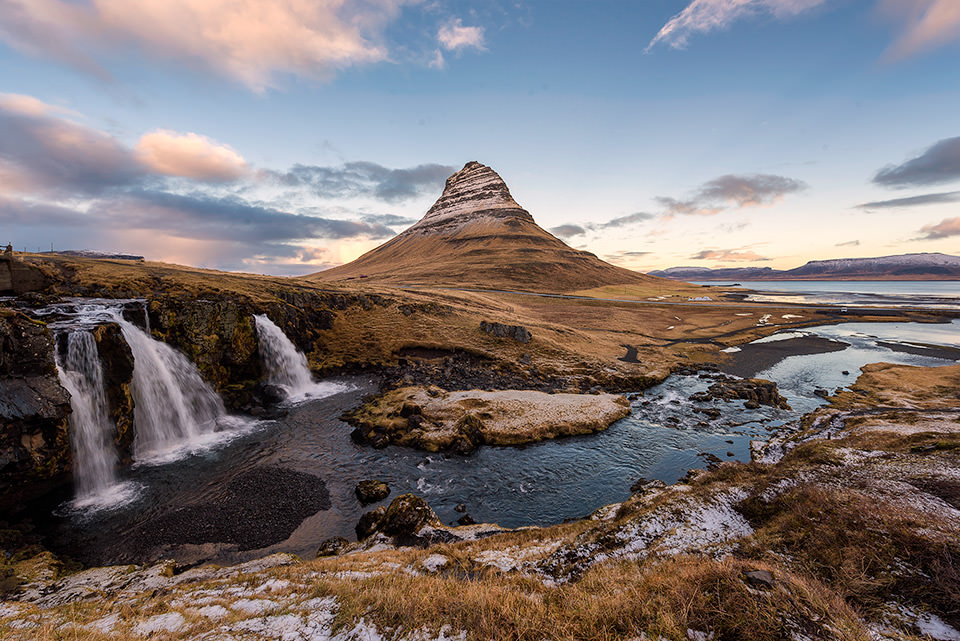
The Challenge of Originality: The Difficulties of Capturing Something Truly New in Well-Trodden Territory
In my latest video, I share some of the different techniques I use to find new and interesting places to photograph. Due to the current world situation, I use Denmark as an example; however, the techniques apply to any country. Whether you just want to go and explore something random, want to increase your chances of finding something, or if you look for something specific, these techniques should be able to help you. The techniques are even more powerful if you combine them.
For instance, if I want to explore a specific mountainous area, Google Earth is a very powerful tool. I can spend hours looking through different valleys and find peaks that stand out. I have used Google Earth to prepare for many different locations. A couple of these examples include both one photo from the Faroe Islands and another from Denmark. Just see the two before and after photos below.
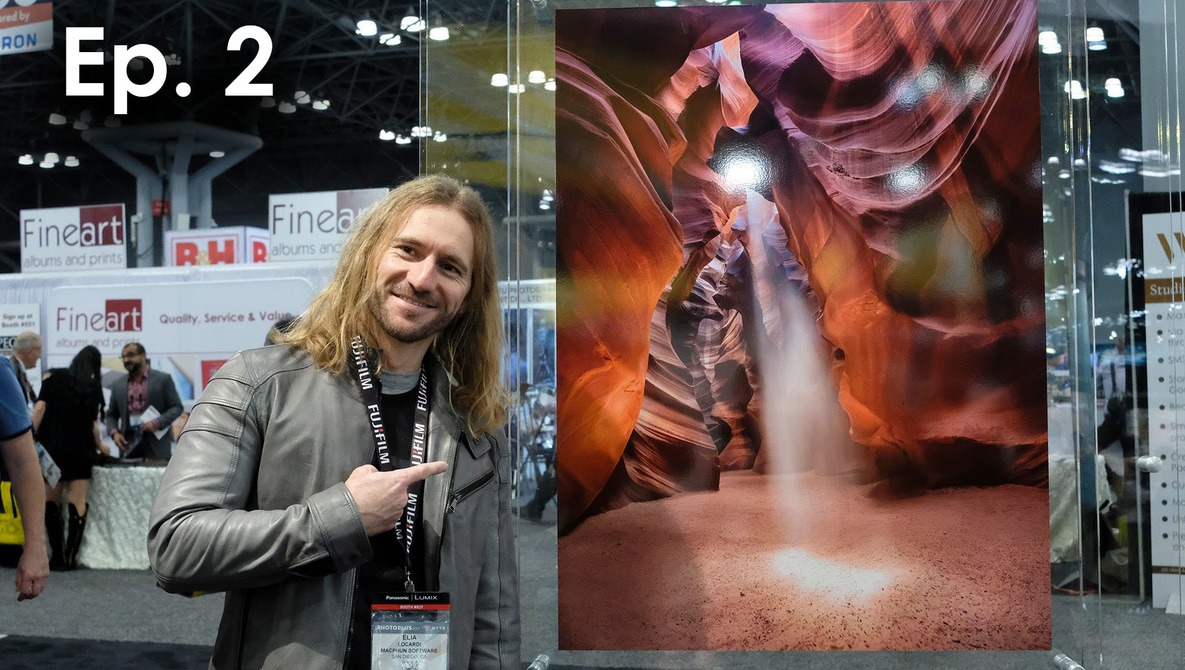


Finding Your Voice: Reframing Your Approach to Iconic Locations to Find Your Own Style
As I mentioned earlier, it’s essential to find your own voice and style when it comes to photographing iconic locations. This can be achieved by reframing your approach and experimenting with different techniques. For example, instead of taking the same old shot of the Eiffel Tower, try capturing it from a different angle or during a different time of day. You can also try experimenting with different editing styles or techniques to give your photos a unique twist.
Tools and Techniques for Unearthing Hidden Gems
Exploring Your Local Tourist Homepages
In Denmark, we have “Visit Denmark,” and in England, they have “Visit England.” These homepages are treasure chests of information: much information on cityscapes, but you do not have to search for long before you find information about nature and landscapes. Most countries also have specific tourist information about local areas, where you can find outstanding spots close to home.
I also find information through different national nature services. In the US, a great example of this would be the National Park Service, and in Denmark, we have something equal, which provides articles and extensive information on where to go and what to see in nature.
Google Search: The Ultimate Tool for Finding Specific Locations
Google is still your best friend when it comes to finding specific locations. Let us say you want to find some oak trees close to where you live: you just search for “Oak Trees” and the location you are close to. You may want to do it in your own language, as most of this information is made by locals for the locals.
Real-World Applications and Examples
Meet Elia Locardi: A Landscape Photographer Who Has Been There, Done That
I still remember the first time I met Elia Locardi. I was busy passing through the vendor exhibits of the Photo Plus show in New York, when I saw a small crowd of people watching a presentation. What attracted me was not the crowd, because people were everywhere – it was the large LCD screen with some stunning imagery.
At the end of the presentation, most people left and I just sat there. I really wanted to meet the man face-to-face and get to know him. As I started talking to Elia, I realized that he was not just an amazing photographer, but also a very down to earth guy. I also got to know his equally friendly and welcoming wife Naomi Locardi, who was there to support her husband every step of the way.
Expert Insights and Analysis
The Truth About Iconic Locations
Although they appear to be remote, iconic locations are often owned and operated by an individual family. To get access, you must stand in line and buy tickets, and if you want to take the cliche shots without anyone in the frame, you’ll have to pay extra for the “photography tour.” The photography tour takes place with hundreds of other tourists jammed into this extremely tight canyon.
When it’s time for a photograph, our guide would push the non-photo tour ticket holders back so that we would have 60 seconds to all take the same shot. The guide threw sand at the wall to get it to create a waterfall effect for the first shot. I’m not sure what I expected, but I guess it doesn’t make sense that sand would be flowing like water without human intervention.
Real-World Applications and Examples
Photographing the World: A Tutorial by Elia Locardi
Fast forward to last July, when I found out that my good friends Patrick Hall and Lee Morris at Fstoppers.com collaborated with Elia Locardi in creating a brand new tutorial called “Photographing the World: Landscape Photography and Post-Processing“. Having seen some of the tutorials that Patrick and Lee produced in the past, I knew this one was not going to disappoint.
With 15 lessons and over 12 hours of video content, this tutorial was one of the most complete and detailed ones I have seen to date. My biggest problem, however, was finding time to watch the content. I really wanted to sit down and watch through each video without skipping through, which was a huge challenge on its own, since finding time has been really tough, considering all the fun projects I have been working on.
Harnessing the Power of Digital Resources
In today’s digital age, finding unique landscapes to photograph has become increasingly challenging. With the same iconic locations being reproduced and reinterpreted repeatedly, it can be difficult to stand out from the crowd. However, by harnessing the power of digital resources, photographers can uncover hidden gems and capture truly unique images.
One of the most powerful digital resources available to photographers is Google Earth. This platform allows users to explore different locations and find peaks that stand out. By spending hours looking through different valleys, photographers can prepare for their next shoot and find unique vantage points. For example, Google Earth was used to prepare for a shoot in the Faroe Islands and Denmark, resulting in stunning before and after photos.
Another valuable digital resource is local tourist homepages. These websites provide a treasure trove of information on cityscapes, nature, and landscapes. By exploring these homepages, photographers can find outstanding spots close to home. In Denmark, for instance, the website “Visit Denmark” provides extensive information on nature and landscapes.
National park services are also an excellent digital resource for photographers. In the US, the National Park Service provides articles and information on where to go and what to see in nature. Similarly, in Denmark, the Danish Nature Department provides valuable information on finding unique locations.
Search engines like Google are also a photographer’s best friend when searching for specific locations. By searching for keywords like “oak trees” and the location, photographers can find hidden gems close to home.
Local Knowledge
Local knowledge is another essential factor in finding unique landscapes to photograph. By tapping into the expertise of local photographers, tour guides, and even casual conversations, photographers can uncover hidden photographic gems.
Meeting other photographers and learning from their experiences is an excellent way to gain local knowledge. For instance, meeting Elia Locardi, a world-renowned photographer, provided valuable insights into his techniques and approach to finding unique locations.
Local tour guides are also an excellent source of knowledge. They can provide information on the best times to visit, the best vantage points, and even offer tips on how to capture the perfect shot.
Casual conversations with locals can also provide valuable information. By striking up a conversation with a local, photographers can gain insights into the best-kept secrets of the location.
Embracing the Unexpected
Embracing the unexpected is a crucial aspect of finding unique landscapes to photograph. By being open to detours, spontaneous exploration, and serendipitous encounters, photographers can capture truly unique images.
Detours can often lead to unexpected photographic opportunities. By taking a different route or exploring a new location, photographers can stumble upon hidden gems.
Spontaneous exploration is also essential in finding unique landscapes. By being open to new experiences and taking risks, photographers can capture truly unique images.
Serendipitous encounters can also lead to unique photographic opportunities. By being open to chance encounters and unexpected events, photographers can capture truly unique images.
Finding Value Beyond the Photograph
Finding value beyond the photograph is essential in creating a truly meaningful photographic experience. By focusing on the experience factor, the value of process, and building a sustainable photographic practice, photographers can create a long-lasting and fulfilling photographic journey.
The Experience Factor
The experience factor is a crucial aspect of creating a truly meaningful photographic experience. By immersing oneself in the location and connecting with the environment, photographers can create a deeper connection with their subject matter.
Personal connection and immersion in the location are essential in creating a truly unique image. By taking the time to appreciate the location and connect with the environment, photographers can capture truly unique images.
The Value of Process
The value of process is another essential aspect of creating a truly meaningful photographic experience. By finding joy and satisfaction in the exploration, research, and planning stages of finding unique locations, photographers can create a long-lasting and fulfilling photographic journey.
The process of finding unique locations is often more rewarding than the end result. By enjoying the journey and finding satisfaction in the process, photographers can create a long-lasting and fulfilling photographic journey.
Building a Sustainable Photographic Practice
Building a sustainable photographic practice is essential in creating a long-lasting and fulfilling photographic journey. By finding a balance between iconic locations and unique discoveries, photographers can create a sustainable photographic practice.
Iconic locations can be overwhelming, and photographers may feel pressured to replicate the same images. However, by finding a balance between iconic locations and unique discoveries, photographers can create a sustainable photographic practice.
Conclusion
In a visual landscape saturated with countless photographs, Fstoppers’ article “Beyond the Crowds” offers a compelling argument for photographers seeking authentic expression. The article deftly explores the allure of the commonplace, deconstructing the notion that originality lies solely in capturing the unfamiliar. By emphasizing image editing techniques, compositional choices, and the power of individual perspective, it empowers photographers to transform ordinary scenes into extraordinary works of art.
This shift in focus has profound implications for the future of photography. As technology advances and accessibility to high-quality cameras increases, the competition for capturing attention intensifies. By embracing the concept of “finding the unique in the ordinary,” photographers can transcend the limitations of trend-driven imagery and cultivate a distinctive voice. This approach fosters creativity, encourages experimentation, and ultimately elevates photography beyond mere documentation to a powerful medium of artistic expression. The challenge, then, lies in honing our individual vision, embracing the mundane with fresh eyes, and crafting narratives that resonate with the human experience, regardless of the location.
In a world overflowing with images, it is the photographer’s ability to see the unseen, to imbue the familiar with meaning, that will truly distinguish their work and leave a lasting impact.
